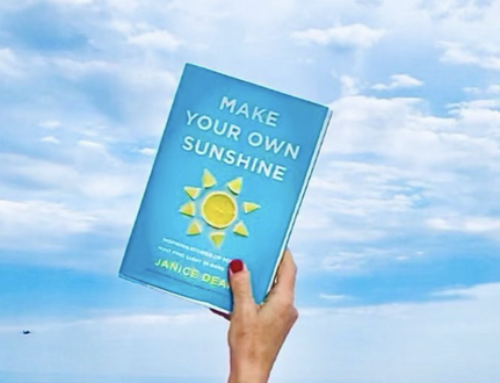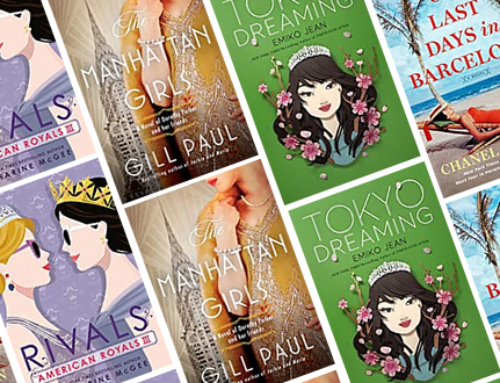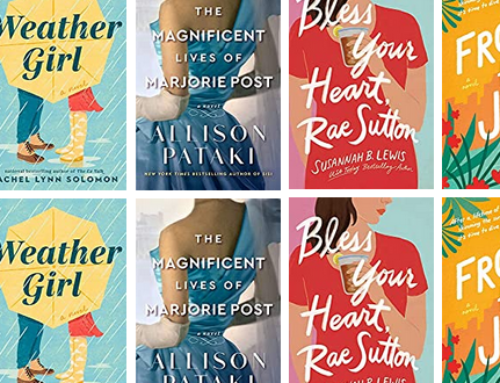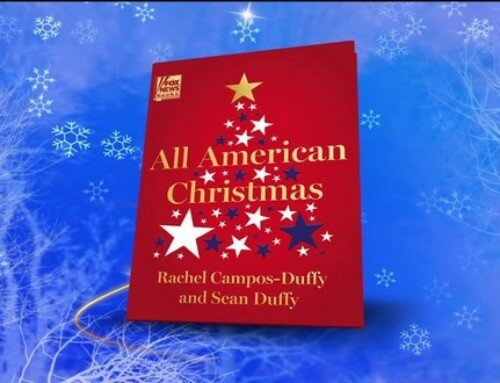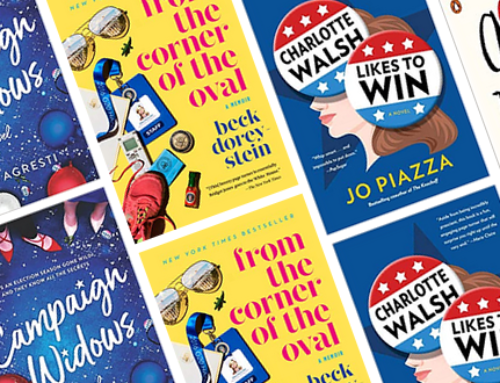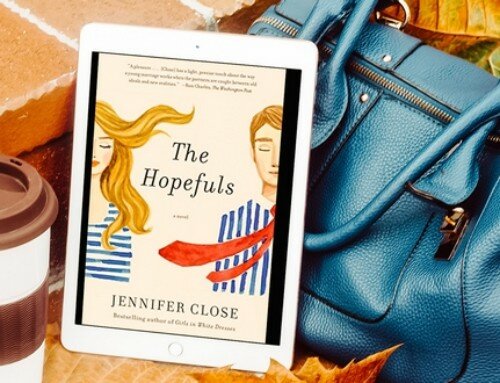Who doesn’t love to fall into a historical fiction novel and feel lost in the time? Here at FFL, we love politically-adjacent historical fiction that cracks open new insight into famous figures we know–like Jackie Kennedy–and that also introduces us to newer figures–like Maria Callas. This month, as we’ve read Jackie and Maria together, we’ve traveled through time, around the world, and learned so much about these two astounding women and the man that brought them into each other’s orbit.
That’s why we were so excited to talk to the author, Gill Paul, about her excellent work with this book, her research process, and what’s next on her proverbial plate.
We hope you enjoy!
What inspired you to write this story and to pair these two women together as our protagonists–versus focusing on one or the other?
A reader in Athens suggested to me that I wrote about the Maria Callas–Onassis–Jackie Kennedy love triangle and right from the start I loved the idea, and knew I wanted to write from the points of view of both women. Maria’s part in the story is less well known, but their fortunes were shaped by each other’s. I wanted to find out if Jackie knew Onassis was still seeing Maria when she accepted his proposal. Did she have any compunction about ‘stealing’ another woman’s lover? I wanted to find out how Maria felt about Jackie. Did she hate her for taking Onassis from her? I wanted to ask how Jackie reacted when she heard Onassis had resumed his affair with Maria after their marriage. This could only be done in historical fiction because all the protagonists are dead now and they didn’t leave memoirs. And so, my story took shape.
Do you think these two women could have been friends–in another life? Are they truly that different–or do they share more similarities than might be obvious at first glance?
You’re right! I think Jackie and Maria had a number of similarities. Both grew up with strong mothers stuck in unhappy marriages. Both were treated badly by the men they loved. Both suffered from hostile media coverage. Would they have been friends in another life? They were intelligent, cultured women who would have had plenty to talk about. Maria wore her heart on her sleeve, while Jackie kept hers closely guarded, but that doesn’t mean they wouldn’t have got along. It’s a nice thought.
Why did you choose to start the novel where you did–why not start after Jack’s death, for example? And how did you decide when to end it–Jackie’s versus Maria’s deaths?
The love triangle at the heart of my novel began with Maria and Ari meeting at the party in the Hotel Danieli in Venice, and it ended when Ari died. I let it continue a little bit further to tie up one final plot strand, but the tangled relationships between the three of them was the core of the story. If I had started after Jack died, the focus would have been on Jackie’s story. I tried to keep the balance equal between Jackie’s and Maria’s stories and hope that readers are equally invested in both.
What is it like writing about historical inevitabilities–the death of JFK, the sinking of the Titanic, the abdication of Edward VIII? How do you keep the writing alive and suspenseful while dealing with looming events that everyone knows must happen at some point in your book?
Great question! It means you have to create suspense in different ways to give the books a page-turning quality. However, the looming event creates a tension of its own, because readers know something the characters don’t. I will never end my novel after the well-known tragedy in question, but will continue to show what happened next. In my two Romanov novels, the massacre at Ekaterinburg happens quite early on. Most Titanic films end when the Carpathia appears on the horizon to rescue survivors, but in my novel, Women and Children First, the ship sinks halfway through, so I could explore what came after, in particular how survivors coped with the horrific events they had witnessed.
You are best known for highlighting the lives of historical women through your work–what do you think society and readers misses out on when we don’t hear the stories of these women? What can readers do to support historical fiction like you write?
I love stepping into the shoes of historical women and exploring the ways they found fulfilment when they had much less control over their lives than we do now. If you wonder why strong women like Jackie and Maria put up with so much from men, it’s useful to remember that women in the US only got the vote when Maria was three and Jackie was nine. It was very unusual for middle- or upper-class women to work, which is why Jackie felt she had to marry money. It also explains why Maria got her reputation for being ‘difficult’ when, if a man had done the same things, he would have been respected for his professionalism. I like to write about women who have been misjudged or marginalized by (usually male) historians, and retell these stories for 21st-century women, partly to remind us all how far we have come and how important it is not to back-slide.
What is your research process like? How do you balance the fictional elements with historical accuracy?
In the case of Jackie and Maria, there are multiple biographies of each, ranging from the scholarly to the sensationalist. I’ll buy loads of books and read everything around my subjects then follow my instincts about which bits I believe and which I don’t. I’ll mainly stick to the historical facts, and I’ll confess in a historical afterword if I manipulate them, but my goal is not historical accuracy. I’m aiming to tell an entertaining story in which I paint portraits of my characters that feel emotionally plausible. I’m not claiming that my version of either Maria or Jackie is accurate; there is no definitive picture of any human being. I’m happy if readers feel it rings true for them.
What do you enjoy reading in your leisure time?
I read mostly historical fiction set in the 20th century, but I will stray into other periods if something catches my eye. Sometimes I’ll read a contemporary novel if there’s a buzz about it. And I always have a few non-fiction books on the go too.
If you could write a book about any historical woman–research possibilities and publication success aside–who would you choose and why?
I have an ‘ideas book’ with dozens of historical women listed. I’ve always fancied writing about Catherine the Great, but there has been too much on her recently. I had been thinking of writing about Amelia Earhart, but Beatriz Williams got there first with Her Last Flight. Coco Chanel has long been on my radar, as has Marie Curie. I want to find stories about them that have not been told before – an unusual angle that leads to fresh insights. I love it when readers send me ideas, so please feel free. If I use your idea, I’ll dedicate the novel to you.
Your next book is about the discovery of King Tut’s tomb. As a kid, I was obsessed with Egypt and especially King Tut’s tomb. What drew you to this topic? How did you decide your way in–which character to make the protagonist,etc?
I’m so glad you were a King Tut fan as a kid. Me too! The discovery of the tomb has been in my ‘ideas book’ for ages and the approaching centenary made it a good time to dive in. I looked at the photos taken outside the tomb in 1922 and they all showed Lord Carnarvon, Howard Carter and Lady Evelyn Herbert – yet she is largely written out of the history books. As I researched, I found she is exactly the type of woman I enjoy writing about: she was brave, she was the author of her own destiny, and she had been a key part of the discovery of the tomb. I wanted to find out who she was, and how her involvement with the tomb affected her. One of my ‘ways in’ came when I read that she suffered multiple strokes in later life. Straight away, I had a vision of an old woman struggling to remember the huge historic event she had been part of, and that’s where I began.
What are you reading now? What was your favorite read of 2020?
I’ve just finished an ARC of Hazel Gaynor and Heather Webb’s new novel Three Words for Goodbye, due out in July. It’s a wonderful, escapist, uplifting read. And I’m now starting Fiona Davis’s The Masterpiece – I love all her books. It’s impossible to choose an out-and-out favorite novel of 2020, but one of the most unusual books I read was John Larison’s Whiskey When We’re Dry. It’s set in the Wild West, about a cross-dressing sharpshooter, so not my usual type of novel, but it’s utterly addictive.
What are you working on next?
Sex and the City set in the 1920s: four extraordinary women trying to juggle their careers and love life in the New York of speakeasies and jazz. I’m having loads of fun writing it!
Future Female Leaders is a participant in the Amazon Services LLC Associates Program, an affiliate advertising program designed to provide a means for us to earn fees by linking to Amazon.com and affiliated sites.



